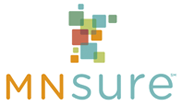Cost-Sharing Reductions
Cost-sharing reductions (CSRs) are a form of financial help that help to reduce the out-of-pocket costs associated with private health insurance, such as deductibles, co-insurance and co-payments.
You can find out if you qualify for cost-sharing reductions and tax credits by completing a MNsure "application WITH financial help." If you want to get an idea of what you might qualify for without completing an application, you can get an estimate by comparing plans.
Your Plan Options and Financial Help
If you qualify for cost-sharing reductions you can only get those savings if you pick a silver plan. (This silver plan limit does not apply to members of federally recognized American Indian tribes.)
If you qualify for cost-sharing reductions, you also have a lower out-of-pocket maximum. Out-of-pocket maximum is the total amount you have to pay for covered medical services per year. When you reach your out-of-pocket maximum, your insurance plan covers 100% of all covered services. If you're a member of a federally recognized American Indian tribe, you may qualify for additional cost-sharing reductions.
The amount of out-of-pocket cost reductions will depend on the private plan you choose. Specific questions about what cost-sharing reductions are included in a plan should be directed to the health insurance company offering the plan.
Read more about picking a plan that's right for you in How to Choose the Right Plan.
2026 Cost-Sharing Reductions
General guidelines for 2026 are shown in the table below. (2025 guidelines available here.)
| Number of People in Household | Household Income |
|---|---|
| 1 | Up to $39,125 |
| 4 | Up to $80,375 |
American Indians or Alaska Natives who are members of a federally recognized tribe receive cost-sharing reductions using different income guidelines. Their cost-sharing reductions are available in all metal levels: bronze, silver, gold and platinum.
